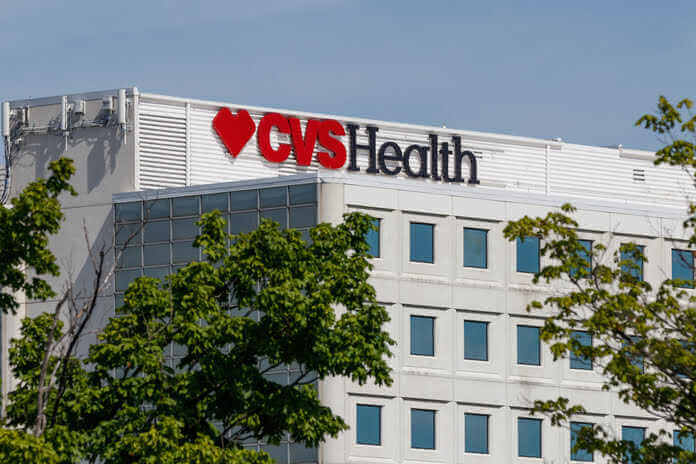CVS Health Corporation (NYSE:CVS) saw its shares plunge significantly, marking the steepest decline in nine years, as the company revised its annual earnings forecast for the second consecutive quarter due to escalating medical expenses within its Medicare insurance division.
In a statement released on Wednesday, CVS announced that adjusted earnings for the year would amount to at least $7 per share, a decrease from the previously anticipated figure of at least $8.30. Additionally, the company adjusted its forecast for cash flow from operations by $1.5 billion, now projected to be at least $10.5 billion.
The stock price plummeted by as much as 20% as of 11:30 a.m. in New York, marking the most significant intraday decline since August 2015. Year-to-date, CVS shares have dropped by 29%, while the S&P 500 Index has experienced a 5.2% gain.
Other companies, such as Humana Inc. (NYSE:HUM) and UnitedHealth Group Inc. (NYSE:UNH), which offer Medicare Advantage plans, have also signaled concerns about rising costs amid increased demand for medical services following the COVID-19 pandemic. Last week, Humana withdrew its 2025 guidance due to uncertainties surrounding expenses and government reimbursement changes in the program. CVS had previously reduced its 2024 guidance in response to similar challenges, though investors had hoped its insurance arm, Aetna, could effectively manage the mounting expenses.
While UnitedHealth shares remained relatively stable, Humana’s stock saw a 3% increase. Walgreens Boots Alliance Inc. (NASDAQ:WBA), CVS’s primary competitor in the retail pharmacy sector, experienced a 2.3% decline in its stock price.
Regarding Aetna’s performance in the most recent quarter, revenue surged by 25% to $32.2 billion, but adjusted operating income plummeted by 60%. This decline was partly attributed to lower star ratings from Medicare, which impacted reimbursement rates.
The heightened utilization of health services also contributed to an increase in the medical benefit ratio of Aetna’s insurance premiums, reaching 90.4% in the first quarter, surpassing analysts’ average projection of 87.6%. A lower ratio is preferable for investors as it indicates more funds are available for administrative expenses and profits.
Furthermore, CVS reported an addition of 745,000 new Medicare Advantage members since the fourth quarter, exacerbating the financial strain, according to Bloomberg Intelligence’s Jonathan Palmer.
CVS executives emphasized their commitment to enhancing profitability in the Medicare Advantage segment by exiting select counties and adjusting plan-level benefits during an investor call. Chief Financial Officer Tom Cowhey outlined a projected baseline performance, highlighting 2025 as the initial phase in a three- to four-year journey to restore target margins.
However, challenges persist for CVS beyond its insurance division, including competition from online retailers in the retail pharmacy sector and revenue misses in health services. Sales in the health services segment, encompassing pharmacy benefits management, fell short of expectations at $40.3 billion, while revenue in the pharmacy and consumer wellness segment surpassed street forecasts, reaching $28.7 billion.
Despite these challenges, analyst John Boylan from Edward D. Jones expressed confidence in CVS’s long-term strategy of offering comprehensive health services. Nonetheless, concerns regarding the company’s ability to navigate rising costs in the Medicare Advantage business are expected to linger into the coming year.
Featured Image: Megapixl















